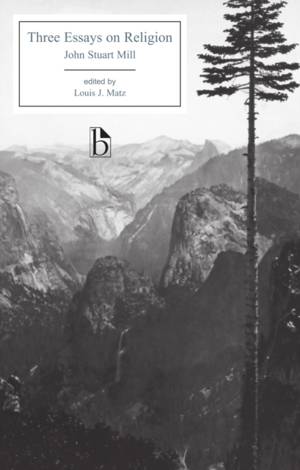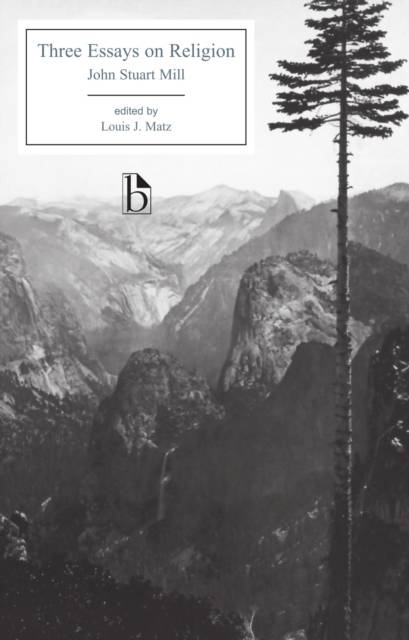
Bedankt voor het vertrouwen het afgelopen jaar! Om jou te bedanken bieden we GRATIS verzending (in België) aan op alles gedurende de hele maand januari.
- Afhalen na 1 uur in een winkel met voorraad
- In januari gratis thuislevering in België
- Ruim aanbod met 7 miljoen producten
Bedankt voor het vertrouwen het afgelopen jaar! Om jou te bedanken bieden we GRATIS verzending (in België) aan op alles gedurende de hele maand januari.
- Afhalen na 1 uur in een winkel met voorraad
- In januari gratis thuislevering in België
- Ruim aanbod met 7 miljoen producten
Zoeken
€ 47,95
+ 95 punten
Uitvoering
Omschrijving
In these three essays, "Nature, " "The Utility of Religion, " and "Theism, " published between 1850 and 1870, English social and political philosopher John Stuart Mill (1806-1873) gives his most sustained analysis of religious belief. Though not prepared to abandon the idea of an overall design in nature, Mill nonetheless argues that its violence and capriciousness militate against moral ends in nature's workings. Moreover, any designer of such a world as we experience it cannot be all powerful and all good for nature is "too clumsily made and capriciously governed." However, since humankind, by and large, cannot, it seems, be deprived of religion, Mill espouses what he calls a "religion of humanity, " whose concepts of justice, morality, and altruism are based on classical models and on the New Testament Sermon on the Mount rather than on the vindictive God of the Old Testament and the world-hating doctrines of St. Paul.
Specificaties
Betrokkenen
- Auteur(s):
- Uitgeverij:
Inhoud
- Aantal bladzijden:
- 306
- Taal:
- Engels
- Reeks:
Eigenschappen
- Productcode (EAN):
- 9781551117683
- Verschijningsdatum:
- 17/03/2009
- Uitvoering:
- Paperback
- Formaat:
- Trade paperback (VS)
- Afmetingen:
- 140 mm x 213 mm
- Gewicht:
- 340 g

Alleen bij Standaard Boekhandel
+ 95 punten op je klantenkaart van Standaard Boekhandel
Beoordelingen
We publiceren alleen reviews die voldoen aan de voorwaarden voor reviews. Bekijk onze voorwaarden voor reviews.









